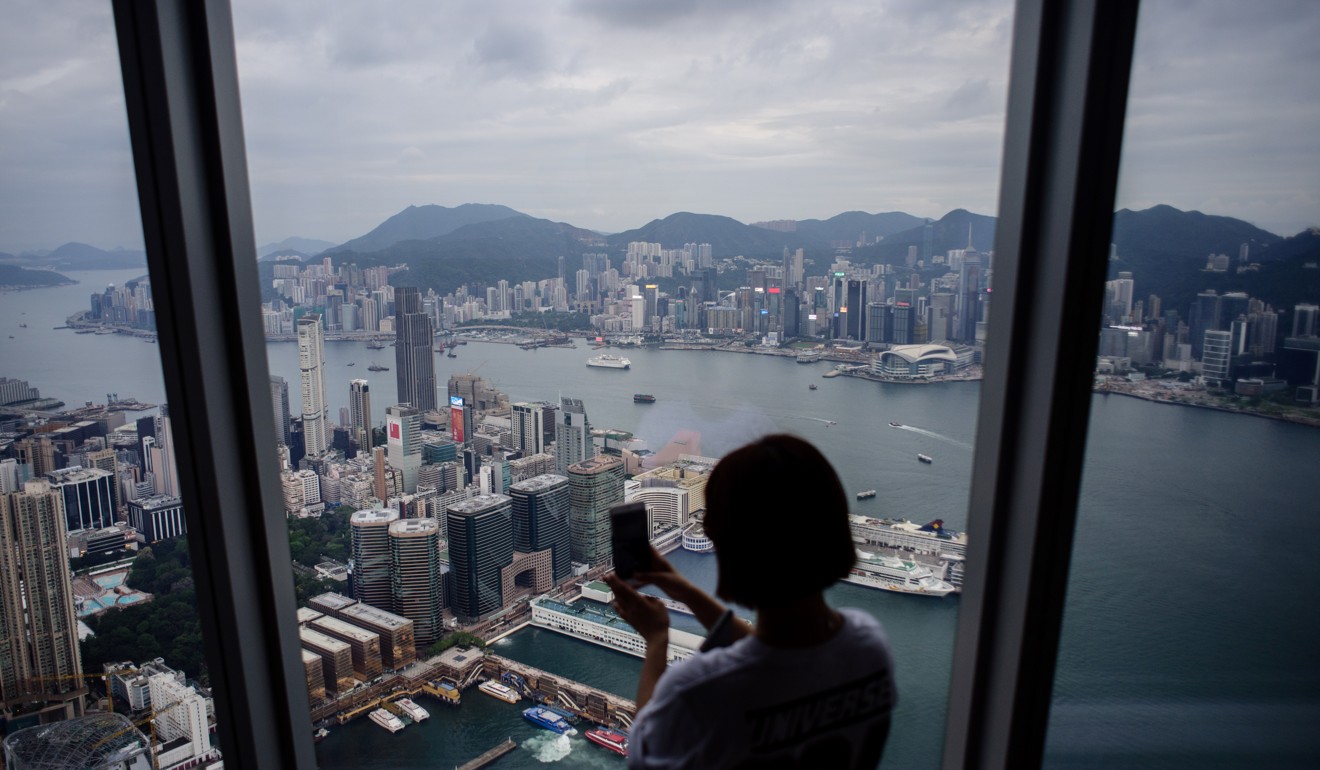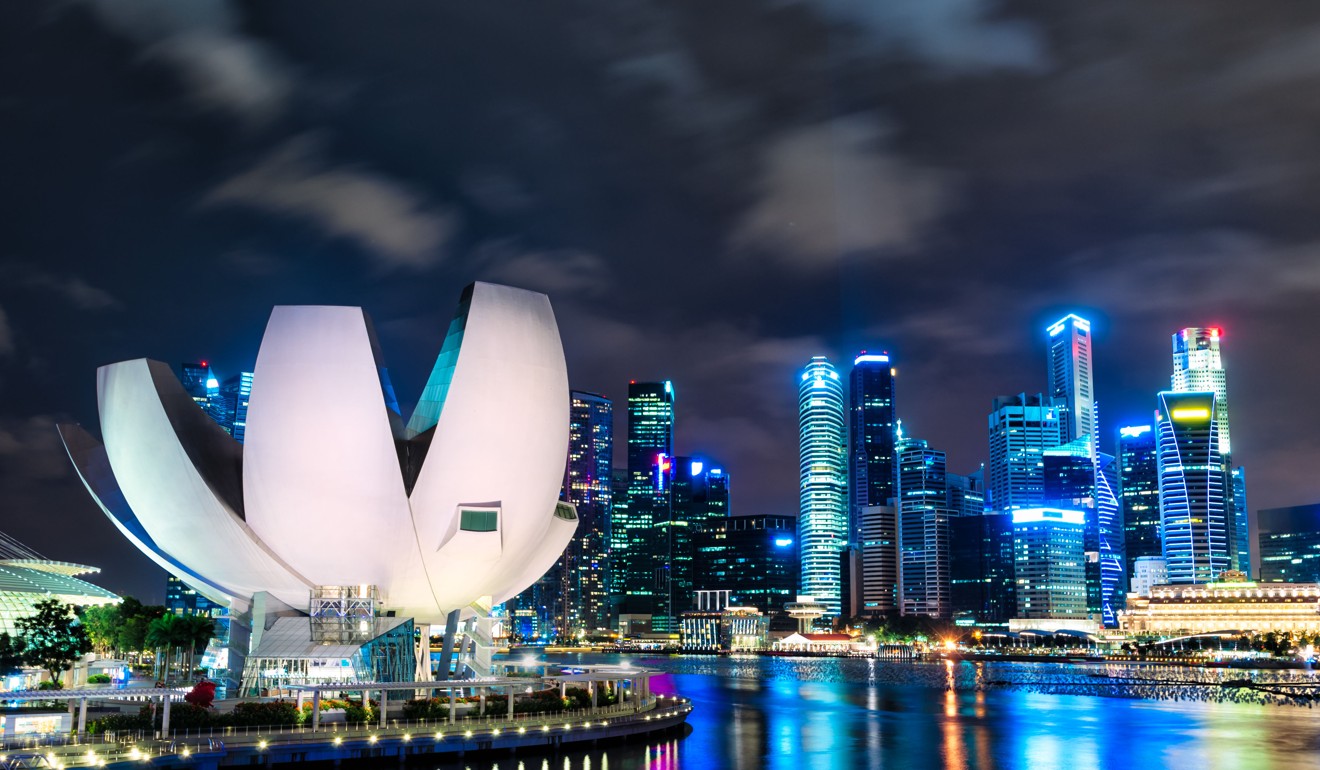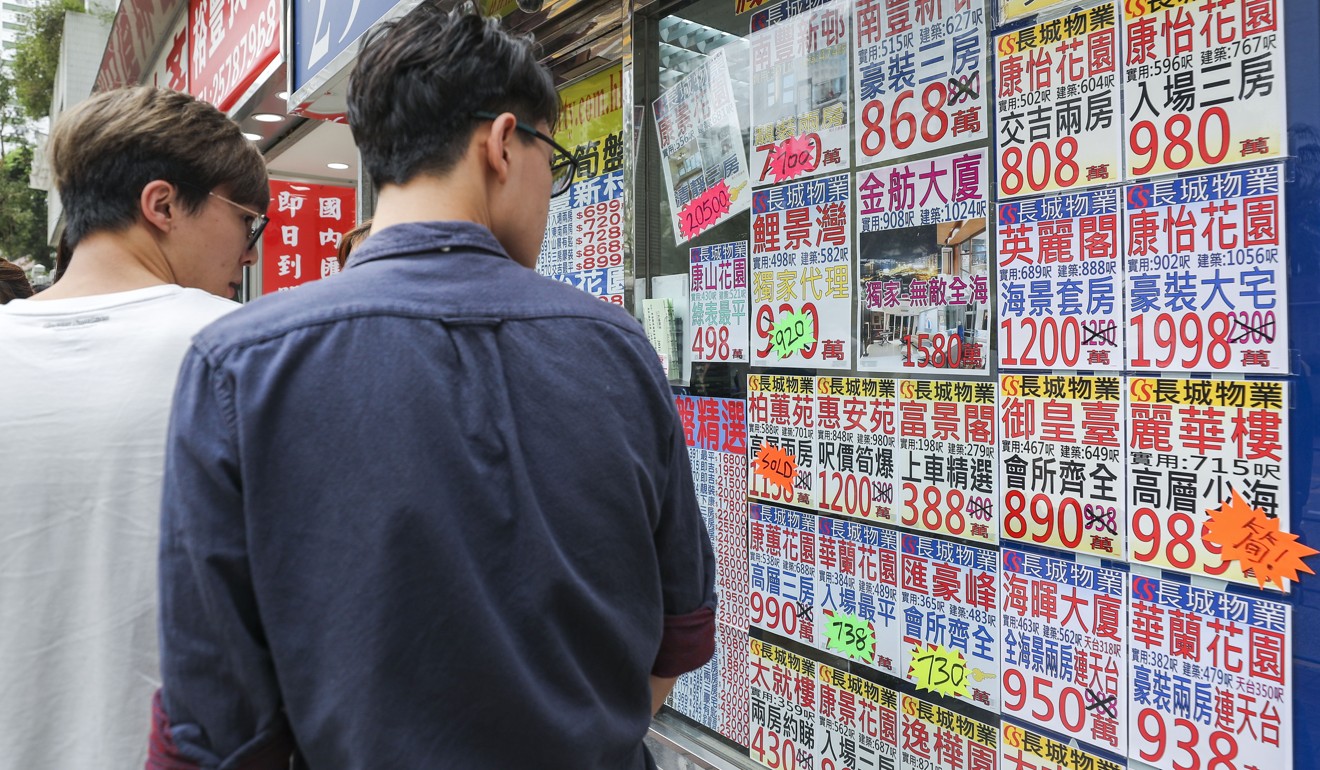
Expats find lure of Hong Kong hard to resist despite what liveability surveys say
- Immigration Department has seen more than 30 per cent increase in number of employment visas
- High cost of living outweighed by bigger salaries, lifestyle and opportunity to travel
Eye-watering rents and the high cost of everyday products are just two of the reasons Hong Kong has slipped down global liveability rankings, but that does not seem to stop people wanting to move here.
Over the past five years there has been a more than 30 per cent increase in the number of work visas issued by the Immigration Department, while the city’s recruitment firms have reported continuing interest from overseas clients.
In fact, while the cost of renting a flat is a constant gripe among most of the city’s residents, the benefits appear to far outweigh the negatives as far as some expats are concerned.
Hong Kong falls to 41 in liveability rankings, and Singapore is No 1
Darryl Blacker and his wife Rebecca, who grew up in Hong Kong, are prime examples. The couple moved to the city from Toronto in late 2017, lured by the chance for Rebecca to get a head start on her teaching career, which comes with a salary far higher than those on offer in Canada.

“Canada is a very good place to get your teaching education, but the actual profession is very seniority-based,” said Darryl, a chef and part-time musician. “She could have potentially waited 10 years to get a job that pays roughly what she is making here.”
The young couple, armed with Rebecca’s new master’s degree in education, grabbed the opportunity with both hands and Darryl landed a job as a chef in a restaurant in Wan Chai.
Darryl said that, while the cost of living in Hong Kong is higher than in Canada, the couple can earn more so their quality of life is better.
Hong Kong jumps to sixth most expensive city in world for expats
“We are able to afford more things than we were in Canada,” he said, noting house prices in Toronto had risen over the past few years partly because of real estate development.
The couple, plus their adopted dogs, live in a flat of more than 300 sq ft on Lantau Island, and take the opportunity to travel during the holidays.
But there are compromises to be made, not least with the air quality, and with higher salaries come longer working hours. Darryl estimated he spends 14 hours a day at work, 12 hours at the restaurant, and two hours commuting, while his wife works at least 10 hours a day.
“It can be very stressful sometimes, but you can also have a very relaxing time,” he said.
Expats earn more in Hong Kong, but prefer to live in Singapore
Still, the pair like the fast pace of life, and being surrounded by people with drive.
“I feel like I’m surrounded by more people whose ambition matches my own. It makes you more ambitious. It makes you more fearless,” Darryl said.
Anecdotal evidence, plus an increase in the number of employment visas issued since 2014, would appear to suggest the couple’s approach was shared by a significant number of other expats who have made Hong Kong their home.
According to the Immigration Department, the number of employment visas issued has increased over the past five years, with 41,592 in 2018 – almost 10,000 more than the 31,676 issued in 2014.
But Darryl Blacker’s optimism and upbeat view of Hong Kong was not shared by all.
A report released last week by ECA International, an international human resources consultancy, said Hong Kong had become increasingly unlivable for Asian expats, with the city falling 12 places in the rankings to 41 this year – its lowest position in 10 years.
Opinion: If Singapore and Vancouver can create liveable cities, why can’t Hong Kong?
The drop also put Hong Kong 40 places behind Singapore, which has been ranked first for 17 years running.
Stallard said Singapore’s consistent top ranking as the most liveable city for expats in Asia was because of its access to great facilities, safety, good quality health care and education, as well as a large expat population.
Hong Kong falls six places to 18th in global talent ranking
“Hong Kong is also a top choice for ambitious expats who wish to progress in their careers, with good opportunities for short-term assignments and geographic transfers to boot,” Stallard said.
Expats in Hong Kong earn 10 per cent more than those in Singapore, the highest salaries in the Asia-Pacific region, and the third best worldwide behind Switzerland and the United States, according to HSBC’s Explorer Survey in 2018.
Meanwhile, another survey showed Hong Kong topped the world’s most expensive city for expats followed by Tokyo. Singapore ranked fourth in the list, according to Mercer’s annual cost of living report.

Alexa Chow Yee-ping, managing director of AMAC Human Resources Consultants, said work was Hong Kong’s biggest attraction for expats, with the low income tax rate also proving to be a big draw.
Chow said in the 10 years since the global financial crisis, her company received inquiries from foreign jobseekers regarding openings in the city as the world saw the potential in China’s continuing emergence as an economic power. As part of China, Hong Kong is an attractive destination for expats.
Hong Kong ranked world’s freest economy for 25th successive year
However, Chow thought the negative factors include high rents, insufficient international schools and fewer cultural activities.
Five years ago, Hu Yikai came to Hong Kong for his master’s degree in journalism because he wanted to try something different after living and working in Singapore.
“I wanted to be in Asia and I thought Hong Kong was a good option,” he said, adding the city offered graduate education at a lower cost than in the US or Europe, plus it was close to Singapore.
Hongkongers financially unprepared for retirement and death, Citi says
But living conditions shocked him when he first arrived because the public housing he stayed in with his family in Singapore was much bigger.
“When I first went with the property agent to view units, it was an eye-opener how small the places were,” he said.
Apart from the rental, Hu was also surprised by the high cost of food and groceries in Hong Kong. He said the same imported products from China were cheaper in Singapore than in Hong Kong.
“When you consider the geographical distance, it often doesn’t make sense to me,” he said.
The highs, lows and legal grey areas of living on a boat in Hong Kong
Hu worked in Hong Kong for around three years and moved back to Singapore because of family reasons. He returned to Hong Kong last year for a job in the financial industry.
“I decided that it was better to work in Hong Kong given my background and skill set,” he said. “I don’t know if I want to live here for a long time. It’s a harsh city and things don’t seem to improve.”
On the plus side, he pointed to the Hong Kong culture and access to an almost constant stream of things to see and do.
“You always have something happening somewhere. It’s the normal people that create the buzz, not the ultrarich,” he said.

On a winter morning when most people were dressed in heavy layers, Joel Arndt and his wife Becca were in their short-sleeve T-shirts. “We are from Minnesota,” Becca said. “It’s about -20 degrees [Celsius] there now.”
The couple moved to the city three months ago because Joel had secured a job as lead pastor at an international church in Kowloon. The couple, in their 50s, had been living in America with their children and grandchildren.
Joel used to work for a big church in the US, but the couple decided to move to Asia and applied for the job in Hong Kong.
One challenge for them has been getting used to the crowded population after moving from a town with 8,000 people to a city with around 8 million. The couple also encountered some language barriers when dealing with local vendors.
“We communicated through gestures and it was fine,” Joel said.
Opinion: Why Hong Kong should score higher in ‘liveability’ surveys
The couple live in a serviced apartment in Tai Po. The place is twice as small as their house in the US, and costs twice as much.
Even so, they are considering staying in Hong Kong for a long time and have been given plenty of help fitting in by Joel’s congregation.
“The people at the church have been over the top kind to us,” he said. When the couple got their ID cards, a local from the church offered to go with them to help with translation.
His wife is now learning Cantonese and would like to find a teaching job when she has finished her master’s degree.
The couple also said their medical expenses were much cheaper in Hong Kong.
“We would have to save [in the US] so that we had enough when the medical bills came because it’s very expensive,” Becca said.
